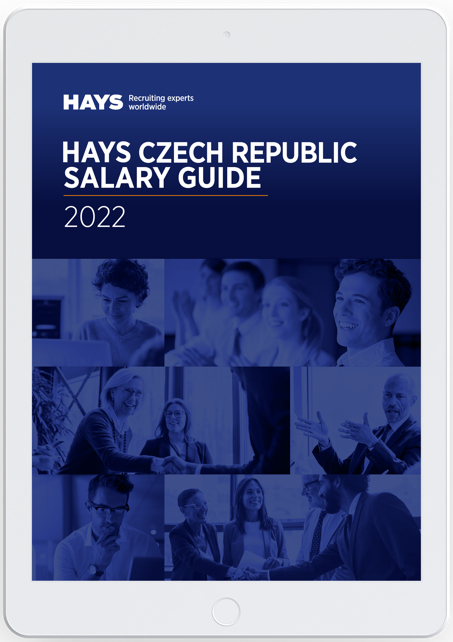Wages stagnated last year, the goal for 2021 is personnel and economic stabilization
Hays, the specialist recruitment company, conducted
a survey of recruitment trends and salaries of qualified workforce across the
industries for 2021. The Hays Salary Guide evaluates the salary data collected
from more than 20,000 registered candidates and over 6,000 job offers.
“The pandemic
affected individual sectors differently, with most needing to make some
redundancies, but many were still looking for new staff, with the second half
of the year in particular seeing more recruitment take place. Some areas, like
in IT or the Life Sciences sector, have seen growth throughout the pandemic and
continue to actively seek experienced professionals for their projects.Higher activity of
applicants is also evident in some areas of the financial segment, such as
controlling and analysis," says Sándor Bodnár, Director of Hays, about the
situation on the labor market last year.
A new reality: Remote
working and the hybrid team model
Lockdowns hit the Czech Republic twice last year, both varying in their
intensity and influence on working patterns and recruitment. Moving quickly
from the workplace to home-office wherever possible has been a major challenge
for many companies. Data protection and cyber security are becoming a priority,
given the number of workers in this mode and the overall higher online activity
of the population.
“Digitization and an
increase in automation can be seen across all sectors and business areas, and
the advent of the pandemic has accelerated its development even more. New roles
will continue to emerge, while others will adapt to meet new expectations and business
needs of companies. These trends are especially visible in the areas of online
marketing and e-commerce, and in the IT field, companies are strengthening
their teams with positions focused on machine learning, Cloud and IoT
solutions.”, adds Sándor Bodnár from Hays.
Wage stagnation and
a different approach to the benefits offered
“Wages across
sectors stagnated last year. A slight increase of 3 - 10% was evident mainly in
the roles with high demand, a narrow specialization or because of urgency from
the employer, for example on the roles mentioned above. Applicants therefore
looked at other aspects beyond the salary of a role, such as the attractiveness
of the job content itself, the possibility for growth, the offer of courses and
other opportunities for further education or flexibility and stability of the
employer. When considering benefits package, companies have gone in two
directions, either narrowing the range of benefits in order to reduce costs, or
have revived their offer of benefits and adapted them to the current situation.
Currently, benefits such as paid-for tests for Covid-19, financial compensation
when working from home, online psychological consultations etc. can be found
more often.”, says Sándor Bodnár, Managing Director of Hays.
For 2021 experts expect a GDP growth of 3.9%.
Companies will therefore put more effort on economical and personnel
stabilization.
Situation
across the business sectors:
Accountancy and
Finance
We can see less job opportunities for experienced
finance managers. Many companies have cancelled such jobs and their
responsibilities are currently covered by existing teams. On the other hand,
the demand for applicants for financial and business controlling, which are
essential in companies setting up cost-saving solutions, has increased
significantly.
Companies are being more careful when
selecting new employees. Therefore, selection processes are being extended and
companies are also including assignments / case studies in them to make sure of
the qualification of the candidate. There was a sharp
decline in wages offered for finance managers, conversely, growth has been seen
in highly demanded positions in controlling and analysis, where job seekers may
receive wages that are higher by 5-10%. This year companies will continue to
look for ways to cut costs, to optimise organisational structure and their recruitment
processes.
|
Accountancy
and Finance
|
2019/2020
|
2020/2021
|
|
Financial
Accountant
|
40 000 - 50 000
|
40 000 - 50000
|
|
Invoicing
|
30 000 - 35 000
|
25 000 - 35 000
|
|
Finance
Manager
|
100 000 - 150 000
|
100 000 - 150 000
|
|
Business Analyst
|
50 000 - 70 000
|
50 000 - 80 000
|
Banking
Last year, the priority
of financial institutions was mainly the development of internal digital
projects, the optimization of online tools and also effective customer service. There has been an increase in marketing
positions in banks, business positions have decreased and their further
reduction will probably take place this year as well. The impact of the pandemic on the hospitality and retail
segments has sparked a great interest among candidates with experience from
these industries to join a career in banking. Companies are therefore facing a
large number of responses to junior business positions, but not all job seekers
have the necessary personal and professional qualifications for such jobs.
Wages stagnated last
year and the same situation will persist this year. The range of benefits
remains attractive and varied, despite austerity measures - flexibility, a
cafeteria system and attractive bonus schemes dominate.
|
Banking
|
2019/2020
|
2020/2021
|
|
Credit Analyst
|
50 000 - 75 000
|
50 000 - 75 000
|
|
Internal Audit Specialist
|
50 000 - 90 000
|
50 000 - 90 000
|
|
Personal Banker
|
28 000 - 38 000
|
28 000 - 38 000
|
|
Relationship Manager - SME
|
35 000 - 45 000
|
35 000 - 45 000
|
Administration,
HR and Law
Due to the massive transition by companies to remote
working, the need for administrative staff and office support in general has
decreased. Therefore, dismissals have been frequent across companies, and
existing employee contracts have not been extended.
HR
positions were among the more frequently available last year. HR staff have
been closely working with other departments to transition employees to home
office and create programmes for successful onboarding and online training.
Their task was to ensure the overall wellbeing of employees in the new
situation, and to create new standards for a safe return to offices and the
subsequent working practices within these offices. Wages across most positions
have stagnated over the past two years. This year will not be any different,
and no general changes can be expected in the remuneration of positions in the sector.
Recruitment has remained relatively active
within the legal services sector. Companies are mainly looking for junior
candidates with knowledge of English and German. Since there are very few such
candidates available in the market, companies can tailor their financial
packaged offered based on the abilities of the candidate. For 2021, we can
expect a very slight increase of wages, however, it is likely that this
increase will not exceed 5%.
|
Administration
/ HR / Law
|
2018/2019
|
2020/2021
|
|
Team Assistant
|
28 000 - 45 000
|
28 000 - 45 000
|
|
HR Administrator
|
30 000 - 40 000
|
30 000 - 40 000
|
|
Office Manager
|
40 000 - 60 000
|
40 000 - 60 000
|
|
Call Centre Operator
|
22 000 - 30 000
|
25 000 - 35 000
|
|
Junior Lawyer / corporate
|
35 000 - 60 000
|
35 000 - 60 000
|
Sales
and Marketing
The impact of the restrictive measures varied mainly
depending on the area of business operation. In general, companies have
strengthened their e-commerce teams - online sales have helped them to cover
the drop in sales from closed brick-and-mortar stores. Outside the marketing
area, experienced salespersons with knowledge of the given area of business
were also on demand, primarily for acquisition activities. Wages for such roles
workers grew very slightly, up to a maximum of 3%. There were no redundancies
in the commercial sector. Applicants are strongly motivated by the strength of
the employer's brand, which will be a priority for them this year as well, as
wages will not rise further.
|
Sales and
Marketing
|
2019/2020
|
2020/2021
|
|
Sales Representative / FMCG
|
30 000 - 50 000
|
30 000 - 50 000
|
|
Sales Representative / Technical
|
35 000 - 65 000
|
35 000 - 65 000
|
|
Sales Representative / IT
|
40 000 - 55 000
|
40 000 - 55 000
|
|
E-commerce Manager / FMCG
|
35 000 - 60 000
|
40 000 - 100 000
|
Retail
Different situation is with retailers. Many
companies have not been able to avoid laying off employees, with global brands
reducing the number of brick-and-mortar stores, choosing instead to focus on
further stabilising their businesses or strengthening their e-commerce
channels. Traders lack tourists, especially in the luxury and premium segments,
where foreign customers represent a majority of their sales volume.
Decline in wages is present mainly in
Prague, particularly in senior roles like Area Managers, where the current
financial offer is approximately 5-7% lower than it has been previously. Planned
expansions have been postponed to this year, which could bring a new recovery
and new jobs to the sector. But everything will depend on the further development
of the pandemic.
|
Retail
|
2019/2020
|
2020/2021
|
|
Shop Assistant
|
21 000 - 50 000
|
22 000 - 50 000
|
|
Store Manager
|
28 000 - 60 000
|
28 000 - 60 000
|
|
E-commerce
Manager
|
45 000 - 150 000
|
45 000 - 150 000
|
|
Brand Manager
|
40 000 - 75 000
|
40 000 - 75 000
|
Life
Sciences
Recruitment also slowed down in pharmaceutical
companies in the beginning of the year 2020, but it was relatively lively in
the area of medical equipment. Especially in the second half of the year, new
positions were opening, especially digitally focused, but also educational.
Companies prefer experienced candidates rather than juniors and graduates.
Wages in the sector grew slightly on certain roles, especially for experienced
traders and e-commerce specialists, by an average of 5%. A similar trend is
expected this year.
|
Farmacie
|
2019/2020
|
2020/2021
|
|
Medical Sales Representative Rx
|
40 000 - 60 000
|
40 000 - 60 000
|
|
Medical Sales Representative / OTC
|
35 000 - 45 000
|
35 000 - 45 000
|
|
Medical Sales Representative / Diagnostic
|
45 000 - 55 000
|
40 000 - 55 000
|
|
Marketing
Manager
|
100 000 - 130 000
|
100 000 - 120 000
|
IT and
Telecommunications
There was a certain slowdown in the IT labour market
at the end of 2019 already. Companies rationalized their recruitment strategies
and, with the advent of the Covid-19 pandemic, intensified their efforts. The
sector has been admirably resilient to the unexpected changes, the number of
jobs available declined temporarily, but employers' demand remained higher
compared to candidates available. There was a drop down of vacancies for
project managers. On the other hand, number of jobs for developers, experts in
cloud solutions, machine learning or security remained high or even increased. The
trend of hiring IT experts from outside the EU has been completely disregarded,
primarily due to traveling obstacles. Wages usually remain unchanged, any
increases are minimal and only on an individual basis.
A number of roles in the sector show a drop down in
the maximum levels of wages offered.
|
Information Technology /Telco
|
2019/2020
|
2020/2021
|
|
Java/.NET Developer
|
60 000 - 140 000
|
60 000 - 140 000
|
|
Programmer / Analyst (graduate)
|
35 000 - 65 000
|
35 000 - 65 000
|
|
DevOps Engineer
|
60 000 - 180 000
|
60 000 - 140 000
|
|
Analyst / Security Specialist
|
40 000 - 90 000
|
60 000 - 110 000
|
Manufacturing
& Engineering
The slowdown in the industry was seen as early as
the beginning of 2020, and fully erupted with the outbreak of the coronavirus
crisis in the Czech Republic a couple of months later. The hardest hit areas in
the first phase were those businesses involved in the supply chain of Asian
companies, and then those that were somewhat dependent on Italy and Spain in
Europe. The most affected area was in the automotive industry, where all
suppliers were affected by the crisis. The only exception in the automotive industry has been in Research and
Development centres, where there is continued interest in highly qualified
candidates from both the Czech Republic and abroad. We
have already seen an increase in the need for automation over the last few
years. This year’s coronavirus crisis has amplified this need, and so we are
seeing ever-increasing demand for candidates, especially in the positions of
PLC programmers, PLC test engineers and automation technicians. The majority of
companies have had to lay off employees, especially in low-level production
positions. In many companies, there has been a reduction in working hours or
cancelled shift work. Companies in the pharmaceutical, food and service sectors
were performing the best. As employers strive to reduce wage costs, the amount
of they’re willing to offer a candidate has become a key factor in the
selection process. There may be a slight increase in wages in specialised
positions at R&D centres or in automation-focused positions this year.
|
Manufacturing
& Engineering (3-5 yrs exp.)
|
2019/2020
|
2020/2021
|
|
Production Engineer
|
50 000 - 75 000
|
50 000 - 75 000
|
|
Quality Engineer
|
50 000 - 80 000
|
50 000 - 80 000
|
|
PLC Programmer
|
43 000 - 80 000
|
43 000 - 80 000
|
|
R&D
Designer
|
50 000 - 80 000
|
50 000 - 80 000
|
Logistics
Wage growth in the
logistics and purchasing sector has stagnated over some time, and in some
cases, wages are actually declining. This hit carriers and companies dealing
with external logistics the hardest in the sector.Some employers, like
carriers, manufacturing companies linked to the automotive sector or storage
providers, had to make redundancies for cost-saving reasons and reorganise
their businesses when these positions were cancelled. The situation has been
different for companies focusing on medical equipment, pharmaceuticals or FMCG,
which have actually increased their capacities and recorded growth, both
economically and in terms of number of employees they have.
New jobs are often
advertised with a lower basic salary than last year, by a maximum of 5%.
Experienced Buyers are currently the most sought-after job profiles in the
sector, where demand remains relatively stable and wage offerings tend to be
stable as well. In 2021, we do not expect wages to grow, but also more
importantly, even not to decline.
|
Logistics & Purchasing
|
2019/2020
|
2020/2021
|
|
Purchasing Assistant
|
37 000 - 45 000
|
35 000 - 43 000
|
|
Purchasing Coordinator
|
39 000 - 50 000
|
38 000 - 48 000
|
|
Logistics Manager
|
85 000 - 180 000
|
80 000 - 160 000
|
|
Logistics Specialist
|
30 000 - 50 000
|
28 000 - 50 000
|
Construction & Property
Construction companies lack unqualified construction
workers, may lead to a delay within the entire construction process. There is
still demand for experienced construction managers and people for the
preparation stages, or specialists in the technical security of buildings. The
closure of retail branches or entire shopping centres has transferred a huge
volume of purchases to the online environment, and e-commerce is thus on the
rise. This has meant increased demand for storage premises. In the case of the
residential market, a significant topic will be the demand in Prague, the
Central Bohemian region and probably in Brno and its immediate vicinity as well.
In the office market, the importance of first-class projects that offer
exceptional technologies, equipment, services and locations will grow. This
will result in ongoing demand for acquisition experts and experienced project
managers or technicians who specialise in interior installations and
conversions - so-called ‘fit-outs. Wage growth will not happen this year, as
the second wave of the pandemic may hit the market harder than the first wave.
|
Construction & Property
|
2019/2020
|
2020/2021
|
|
Construction Manager
|
40 000 - 70 000
|
35 000 - 60 000
|
|
Budgeting
|
35 000 - 60 000
|
35 000 - 60 000
|
|
Property Manager
|
60 000 - 90 000
|
55 000 - 90 000
|
|
Technical Director
|
70 000 - 130 000
|
70 000 - 120 000
|
Shared
Services Centres
March 2020 saw a temporary freezing of the
labour market for shared services centres and a suspension of recruitment
processes. Organisations primarily tied to the segments most affected by the
pandemic have not avoided lay-offs. The austerity measures applied by companies
meant that wage growth stalled, mostly due to the economic impact of the
coronavirus pandemic. Wages have remained at the same level as in the previous
year. The number of vacant jobs is lower than it was at the beginning of last
year. Job seekers who are currently unemployed are now willing to accept a
compromise with job offers and are often willing to reduce their wage demands
if this may increase the likelihood of finding a new job more quickly. The 2021
may bring an increase in job opportunities again, including newly opened
positions. However, the speed at which vacant positions are offered and the
number that we will see, will be closely related to the further development of
the pandemic.
|
Business
Services / AP/AR¹
|
2019/2020
|
2020/2021
|
|
Junior
|
35 000 - 40 000
|
35 000 - 40 000
|
|
Specialist
|
38 000 - 45 000
|
38 000 - 45 000
|
|
Senior
|
45 000 - 55 000
|
45 000 - 55 000
|
|
Team Leader
|
55 000 - 85 000
|
55 000 - 85 000
|
|
¹ Wages include bonuses for knowledge of
another language, apart from English
|
About
Hays
Hays plc
(the "Group") is a leading global professional recruiting group. The
Group is the expert at recruiting qualified, professional and skilled people
worldwide, being the market leader in the UK and Australia and one of the
market leaders in Continental Europe, Latin America and Asia. The Group
operates across the private and public sectors, dealing in permanent positions,
contract roles and temporary assignments. As at 30 June 2020 the Group employed
c.10,400 staff operating from 266 offices in 33 countries across 20
specialisms. For the year ended 30 June 2020:
– the
Group reported net fees of £996.2 million and operating profit (pre-exceptional
items) of £135.0 million;
– the Group placed around 66,000 candidates into permanent jobs and
around 235,000 people into temporary roles;
– 17% of
Group net fees were generated in Australia & New Zealand, 26% in Germany, 23%
in United Kingdom & Ireland and 34% in Rest of World (RoW);
– the
temporary placement business represented 59% of net fees and the permanent placement
business represented 41% of net fees;
– IT is
the group’s largest specialism, with 25% of net fees, while Accountancy &
Finance (15%) and Construction & Property (12%), are the next largest
– Hays
operates in the following countries: Australia, Austria, Belgium, Brazil,
Canada, Chile, China, Colombia, the Czech Republic, Denmark, France, Germany,
Hungary, India, Ireland, Italy, Japan, Luxembourg, Malaysia, Mexico, the
Netherlands, New Zealand, Poland, Portugal, Romania, Russia, Singapore, Spain,
Sweden, Switzerland, UAE, the UK and the USA





